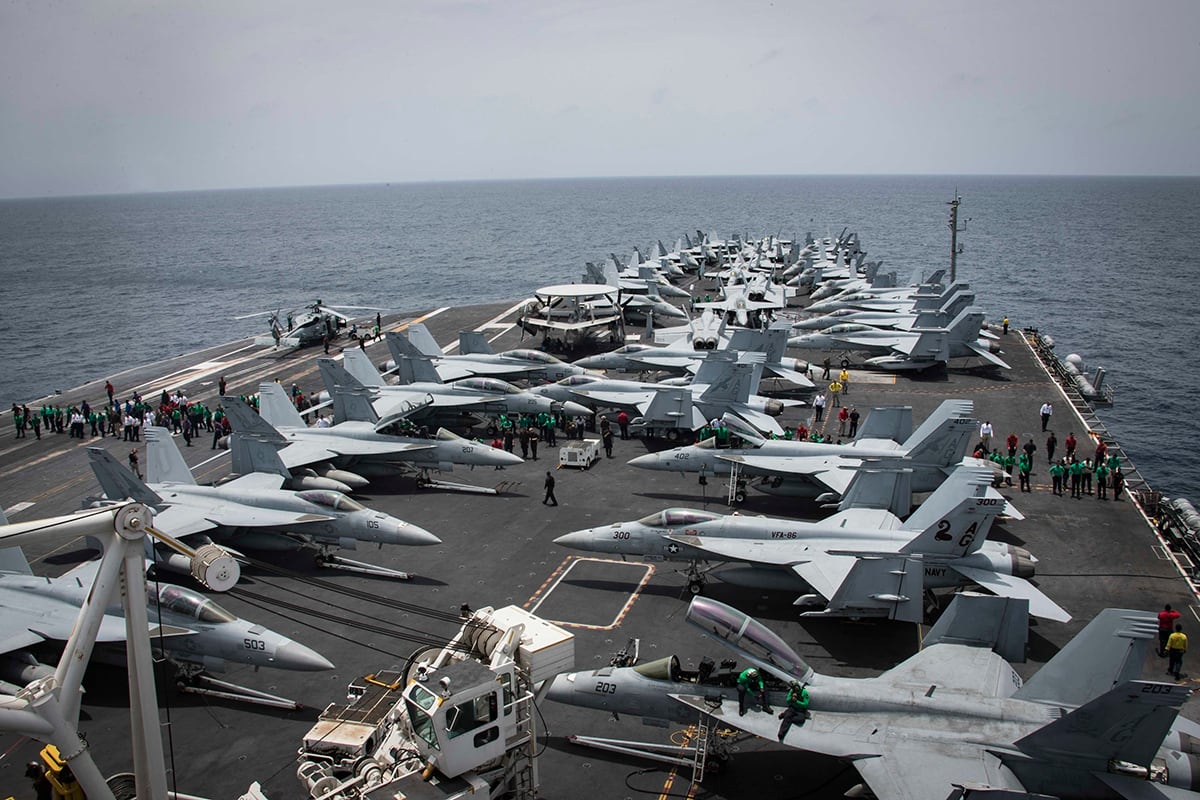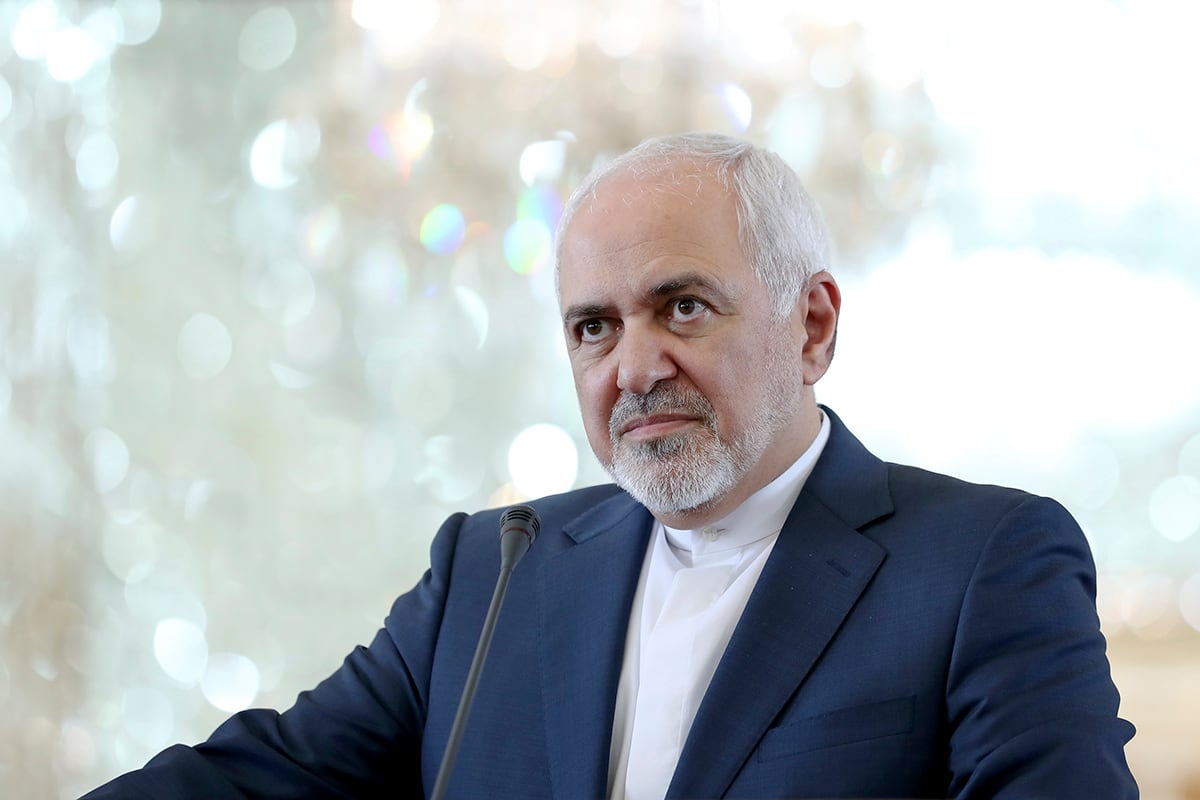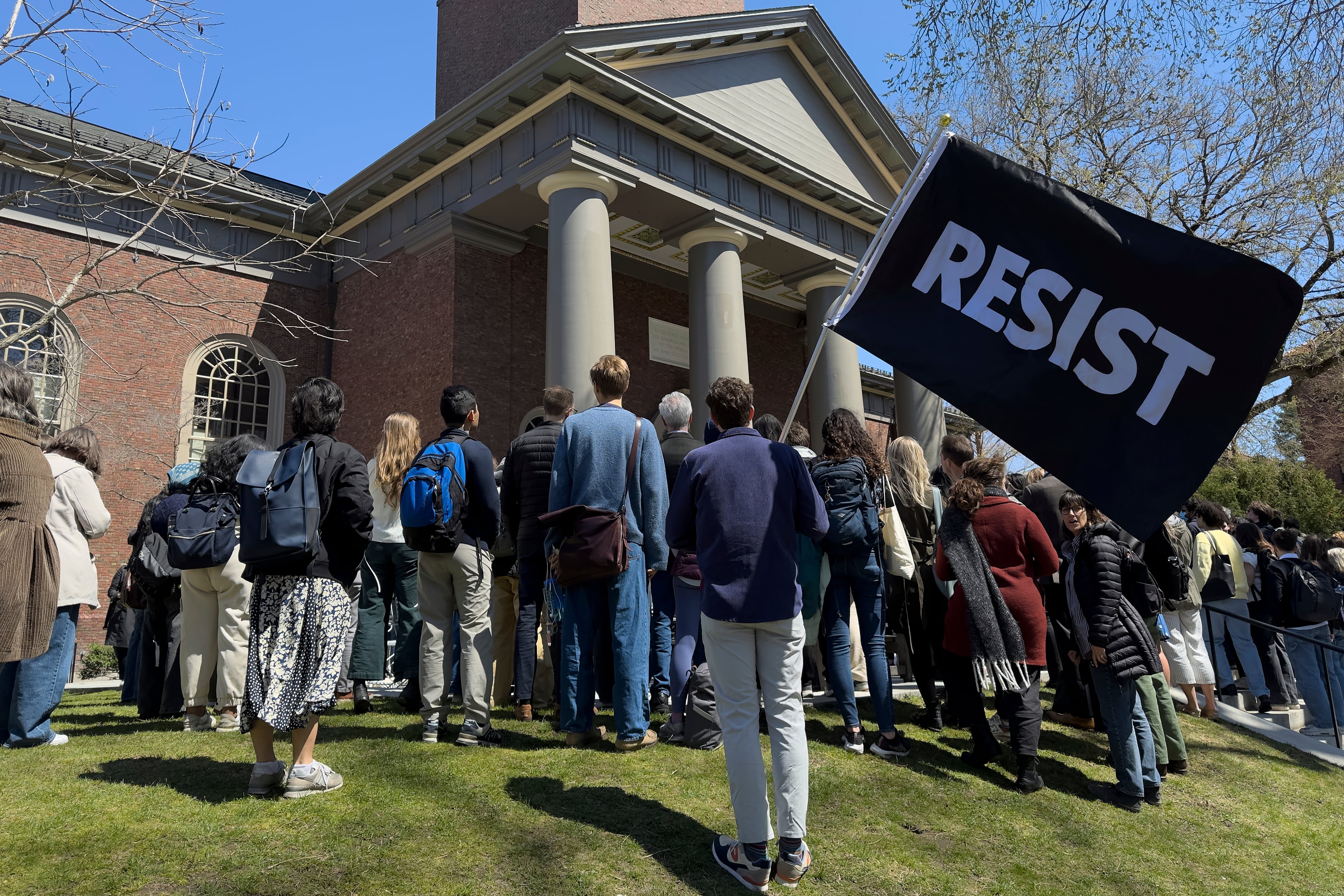TEHRAN, Iran — Iran has broken the limit set on its stockpile of low-enriched uranium by its 2015 nuclear deal with world powers, international inspectors and Tehran said Monday, marking its first major departure from the unraveling agreement a year after the U.S. unilaterally withdrew from the accord.
The announcement by Iran’s Foreign Minister Mohammad Javad Zarif and later confirmation by the U.N. nuclear watchdog puts new pressure on European nations trying to save the deal amid President Donald Trump’s maximalist campaign targeting Tehran. Iran separately threatens to raise its uranium enrichment closer to weapons-grade levels on July 7 if Europe fails to offer it a new deal.
It also further heightens tensions across the wider Middle East in the wake of Iran recently shooting down a U.S. military surveillance drone, mysterious attacks on oil tankers that America and the Israelis blame on Tehran, and bomb-laden drone assaults by Yemen’s Iranian-backed rebels targeting Saudi Arabia.
The European Union urged Iran to reverse course and Israeli Prime Minister Benjamin Netanyahu called the action "a significant step toward making a nuclear weapon." Iran long has insisted its nuclear program is for peaceful purposes, despite Western fears about it.
RELATED

Though Trump pulled back from airstrikes targeting Iran after the U.S. drone was shot down, Washington has rushed an aircraft carrier strike group, nuclear-capable B-52 bombers and thousands of additional troops to the region. That's raised fears that a miscalculation or further incidents could push the two sides into an armed conflict, some 40 years after the Islamic Revolution and the takeover of the U.S. Embassy in Tehran.
Speaking to journalists in Tehran, Zarif acknowledged Iran that broken through the limit set by the accord.
"We had previously announced this and we have said it transparently what we are going to do," Zarif said. "We are going to act according to what we have announced and we consider it our right reserved in the nuclear deal."
The U.N. nuclear watchdog, the International Atomic Energy Agency, later said its director general had informed officials that it verified Monday that Iran had broken through the limit.
Under terms of the nuclear deal, Iran agreed to have less than 300 kilograms (661 pounds) of uranium enriched to a maximum of 3.67%. Previously, Iran enriched as high as 20%, which is a short technical step away from reaching weapons-grade levels. It also held up to 10,000 kilograms (22,046 pounds) of the higher-enriched uranium.
Neither Zarif nor the U.N. agency said how much uranium Iran now had on hand. Last week, an Iranian official in Vienna said that Tehran was 2.8 kilograms away from the limit. Iran previously announced it had quadrupled its production of low-enriched uranium, which at under 3.67% is enough to power a nuclear reactor to create electricity, but is far below weapons-grade levels.
However, Iran could have chosen to mix the low-enriched uranium with raw uranium, diluting it and bringing it down under the cap. Pushing past the limit served as a notice to Europe, Zarif said.
The "actions of the Europeans have not been enough so the Islamic Republic will move ahead with its plans as it has previously announced," Zarif said. "We are in the process of doing our first phase of actions both on increasing our stockpile of enriched uranium as well as our heavy water reserves."
Breaking the stockpile limit by itself doesn't radically change the one year that experts say Iran would need to have enough material for an atomic bomb, if it chooses to pursue one.
But by coupling an increasing stockpile with higher enrichment, it begins to close that one-year window and hamper any diplomatic efforts at saving the accord.
At the time of the 2015 deal, which was agreed to by Iran, the United States, China, Russia, Germany, France and Britain, experts believed Iran needed anywhere from several weeks to three months to have enough material for a bomb.
Zarif stressed the country remained on track to raise its enrichment if Europe did not take any additional steps toward saving the accord.
"The next step is about the 3.67% limitation, which we will implement too," he warned.
There was no immediate reaction from Washington. Trump campaigned on pulling the U.S. from the deal, which saw Iran agree to limit its enrichment of uranium in exchange for the lifting of economic sanctions. Since Trump withdrew America from the pact a year ago, the U.S. has re-imposed previous sanctions and added new ones, as well as warning other nations they would be subject to sanctions as well if they import Iranian oil.
A spokeswoman for EU foreign policy chief Federica Mogherini said the bloc urged Iran "to reverse this step and to refrain from further measures that undermine the nuclear deal," known as the Joint Comprehensive Plan of Action.
Spokeswoman Maja Kocijancic underlined that Europe "remains fully committed to the agreement as long as Iran continues to fully implement its nuclear commitments."
British Foreign Secretary Jeremy Hunt said he was "deeply worried" by Iran's announcement. In a tweet, he urged Tehran "to avoid any further steps away from JCPoA & come back into compliance."
As Netanyahu said Iran's move was a "significant step toward making a nuclear weapon," he urged European countries to "stand by your commitments" to impose sanctions against Tehran if it violated the agreement.
"The policy changed from 'wait out Trump' to 'hit back at Trump.' That's a big deal," said Cliff Kupchan, a chairman at the Eurasia Group and longtime Iran watcher. "I don't think either side wants war, but both sides do want leverage. We're in for a rough ride."
In Moscow, Russia's Deputy Foreign Minister Sergei Ryabkov noted that Iran had warned in advance it was going to exceed the limit set by the deal and emphasized that Tehran's move followed "unthinkable" U.S. pressure.
"It didn't come as a surprise, Iran long has warned about it," Ryabkov said.
"Exceeding the 300-kilogram limit causes regret, but shouldn't be overdramatized. It must be seen as a natural result of the preceding events," Ryabkov said. "Iran has faced an unprecedented and unthinkable U.S. sanction pressure, effectively meaning a total oil embargo, an attempt to strangle a sovereign state."
Associated Press writers Kiyoko Metzler in Vienna and Vladimir Isachenkov in Moscow contributed.




